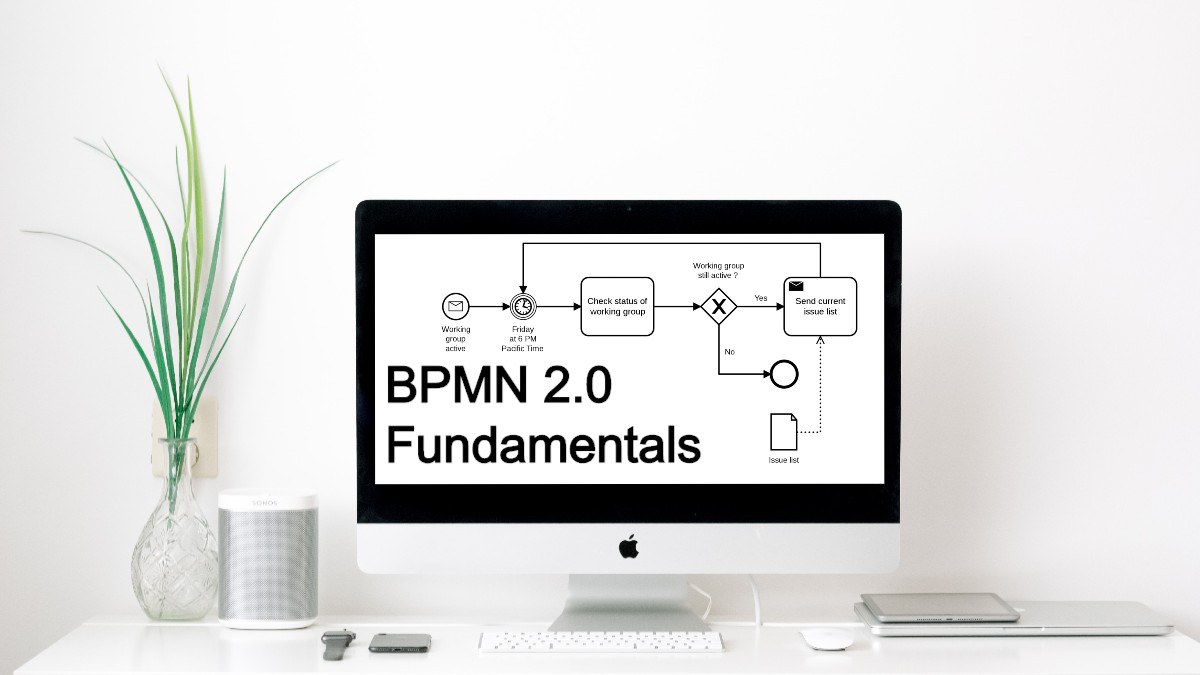BPMN Parallel Multiple Event

The BPMN Parallel Multiple Event article provides a detailed explanation of the parallel multiple event BPMN element, including the definition, notation, rules, guidelines and examples.
The BPMN Parallel Multiple Event article delves deep into the intricacies and applications of the parallel multiple event element as outlined in the BPMN 2.0 specification. The definition, notation, and rules sections offer a concise summary of the BPMN 2.0 Specification pertaining to the parallel multiple event element. Meanwhile, the guidelines section presents a curated collection of best practices specific to the parallel multiple event, showcasing its proper and effective utilisation in process modelling.
BPMN Definition
A Multiple Event is determined by an Event that specifies more than one Event Definition. This means that there are multiple triggers REQUIRED before the Process can be instantiated. All of the types of triggers that are listed in the Start Event MUST be triggered before the Process is instantiated. ~ BPMN Specification
BPMN Notation
The BPMN specification defines the different types of Parallel Multiple Event elements using the following description and notation:
| Element | Description | Notation |
|---|---|---|
| Parallel Multiple Start Event | ||
| Parallel Multiple Event Sub-Process Event (Interrupting) | ||
| Parallel Multiple Event Sub-process Event (Non-Interrupting) | ||
| Parallel Multiple Intermediate Catch Event | ||
| Parallel Multiple Boundary Event (Interrupting) | ||
| Parallel Multiple Boundary Event (Non-Interrupting) |
BPMN Event Types: Parallel Multiple Events
BPMN Event Types
BPMN events represent various types of occurrences that affect the flow of a process, and they can be categorized based on their position and behavior in the process.
- Start Event: The Start Event indicates where a particular Process will start.
- Intermediate Event: The Intermediate Event indicates where something happens (an Event) somewhere between the start and end of a Process.
- End Event: The End Event indicates where a Process will end.
- Catching Events: Events that catch a trigger. All Start Events and some Intermediate Events are catching Events.
- Throwing Events: Events that throw a Result. All End Events and some Intermediate Events are throwing Events that MAY eventually be caught by another Event.
- Boundary Event: An Intermediate Event that is attached to the boundary of an Activity.
The following table illustrates how the different types of Parallel Multiple Events are grouped as per the BPMN Event types:
| Catching Events | Throwing Events | |||||||
| Start Event | Intermediate Event | End Event | ||||||
| Standard | Event Sub-Process Interrupting | Event Sub-Process Non-Interrupting | Catching | Boundary Interrupting | Boundary Non- Interrupting | Throwing | Standard | |
BPMN Notation: Parallel Multiple Event
Finally
This article provided a detailed explanation of the BPMN Parallel Multiple Event element. Follow me on any of the different social media platforms, and feel free to leave comments.
Reference
- Business Process Model and Notation Specification Version 2.0.2. (2014, January). https://www.omg.org/spec/BPMN/2.0.2/
